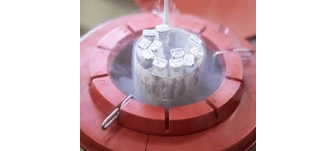 For more than 30 years, frozen embryo transfers (FETs) have been successfully utilized when patients have had excess frozen embryos remaining from a fresh cycle. But with older freezing methods, success rates were not as impressive. In recent years, however, several studies have demonstrated the increasing effectiveness of frozen IVF cycles. In fact, most IVF centers are now conducting more frozen cycles for certain types of patients, making FETs the first line of treatment for many.
For more than 30 years, frozen embryo transfers (FETs) have been successfully utilized when patients have had excess frozen embryos remaining from a fresh cycle. But with older freezing methods, success rates were not as impressive. In recent years, however, several studies have demonstrated the increasing effectiveness of frozen IVF cycles. In fact, most IVF centers are now conducting more frozen cycles for certain types of patients, making FETs the first line of treatment for many.
Factors Improving FET Success Rates
There are several reasons for the improved success. First, embryologists are now freezing embryos through vitrification, a rapid form of cryopreservation. Because of vitrification, more embryos are surviving the thawing process. Second, many experts feel frozen cycles more closely mirror a natural uterine environment since a woman’s hormone levels return to normal after being stimulated for an egg retrieval.
Which Patients Benefit the Most
At HRC Fertility, we recommend frozen cycles for patients whose estradiol blood results are very high and also have many follicles, and/or for those who have progesterone levels over 2.0. The latter means the lining of the uterus would not be ideal for transfer and pregnancy. We check these levels on every patient on the day of their trigger shot. Also, studies have shown higher pregnancy rates with FETs for older patients who have a day three (3) transfer without genetic testing.
Strengths and Weaknesses of Frozen Cycle Protocols
One of the major strengths of an FET is that we are not stimulating the ovaries at the same time as preparing the uterine lining for an embryo transfer. So when we conduct a frozen cycle, we are only focusing on creating an optimal uterine environment.
Frozen cycles are convenient for patients who are using a surrogate with a donor egg. FETs allow us to stimulate the donor and freeze the eggs/embryos while waiting for the intended parents to choose a surrogate, especially if the donor is only available at a certain time. FETs are also convenient for international couples that only have the option to be here for a shorter period of time. This allows them to freeze all the embryos and return to the clinic for a transfer.
At our practice, we strive to provide individualized treatment plans for all patients and will coordinate the type of cycle that is best for you and your diagnosis. Please ask me or another HRC doctor is you have any questions.
https://en.wikipedia.org/wiki/Embryo_cryopreservation
